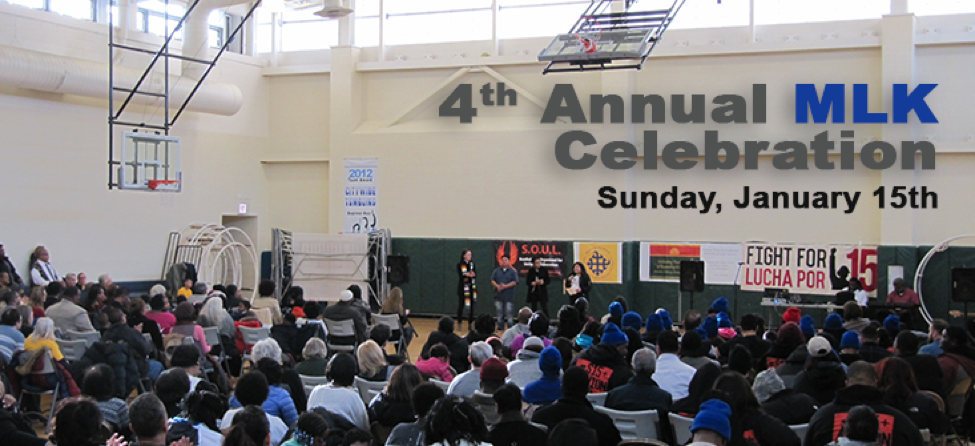
Our Blog

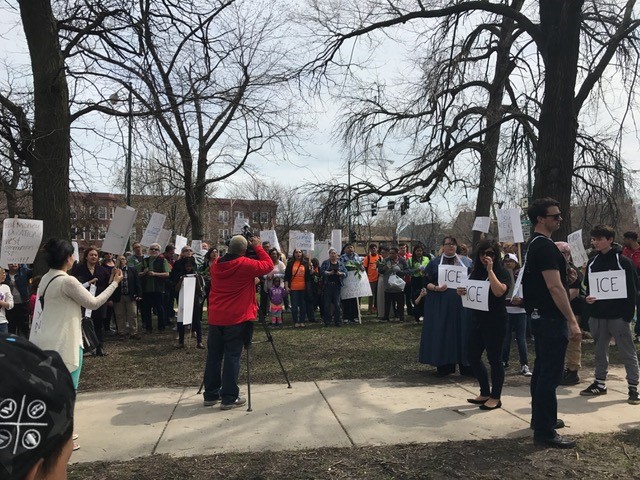
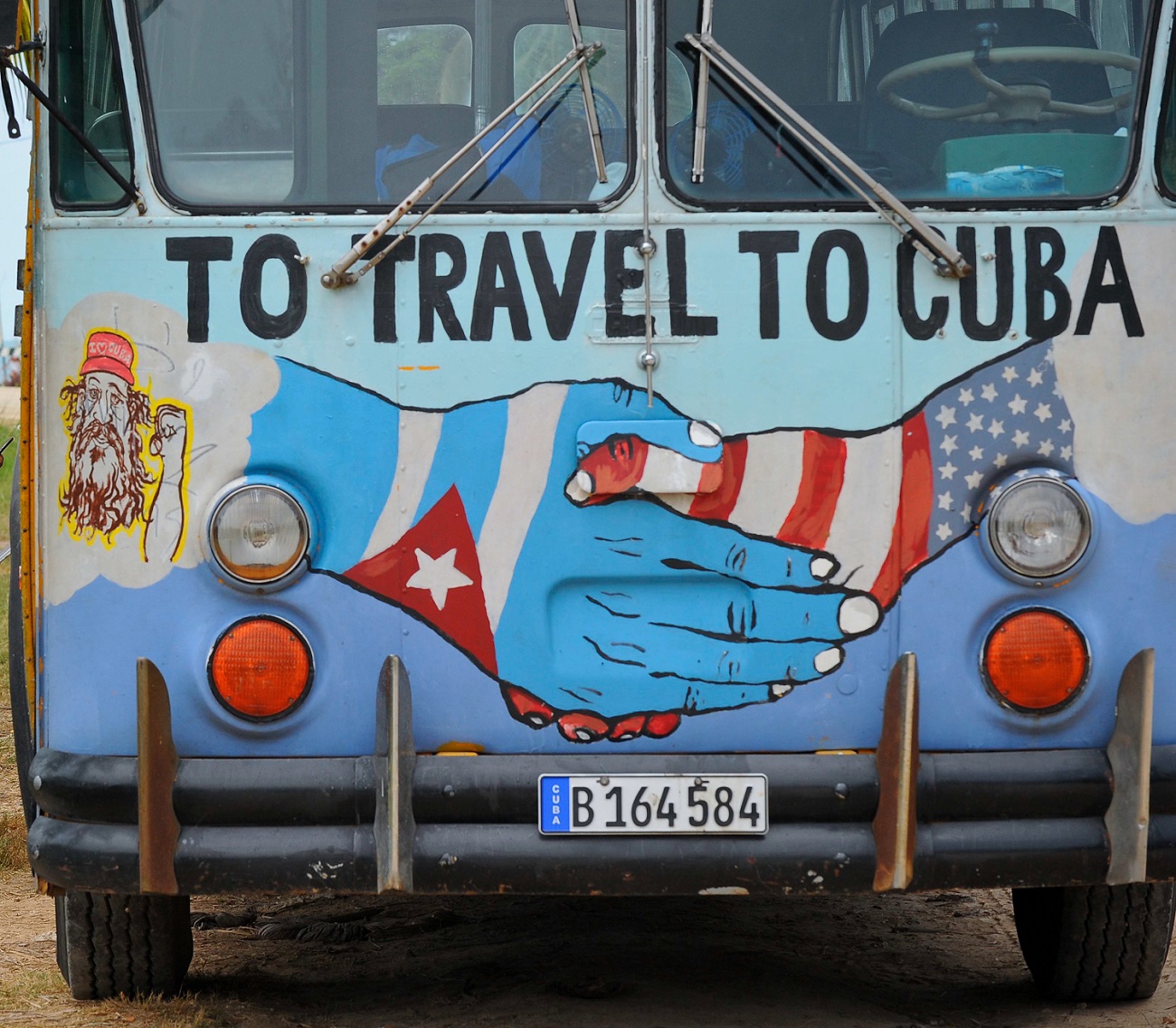
(Español Aqui)
While diplomatic relations between the U.S. and Cuba have been reestablished and some trade and travel restrictions have been changed by executive order, the embargo remains in place and the Cuban people still experience the shortages of crucial medicines and other essential products. Imposed in the early sixties to “bring about hunger, desperation and overthrow of the government” (State Department, April 6, 1960) the U.S. embargo is often called a blockade because of the widespread effects of these policies. CRLN has worked with many other organizations for more than twenty years to end these harmful policies carried out in our name. This work has led to many positive changes in policy. Because these policy changes were made by executive order our current president was able on June 16 to reinstate some of the limits to travel and trade. Action by Congress is required to finally end all the U.S. restrictions including the embargo and this year several bi-partisan bills have been reintroduced in the House and Senate. By working together we can change these harmful policies!
IL Senators Durbin and Duckworth are (or soon will be) co-sponsors of the bills in the Senate, so in Illinois we are focusing on the Illinois Representatives. Call the Capitol Switchboard today at 202-224-3121 to be connected to your Representative. Let them know that now is the time to finally lift these restrictions (sample script below)! Be sure to thank them if they are a co-sponsor already.
House Bills
✱ The Cuba Agricultural Exports Act (H.R. 525)
Introduced by Rep. Eric A. Crawford (R-AR-1)
This bill seeks to repeal financing restrictions, allowing firms in the U.S. to offer credit to Cuba in connection with exports of U.S. agricultural goods. It also seeks to eliminate restrictions on key federal funding used in agricultural export promotions. Current Illinois representatives co-sponsoring are: Robin Kelly (D- IL 02), Rodney Davis (R-IL 13), Cheri Bustos (D- IL 17), Darin LaHood (R- IL18), Raja Krishnamoorthi (D-IL-8)
✱ The Cuba Trade Act (H.R. 442)
Introduced by Rep. Tom Emmer (R-MN-6)
This bill would allow businesses in the private sector to trade freely with Cuba, while prohibiting taxpayer funds to be used on promotion or development of a new market. Current Illinois representative co-sponsoring is Darin LaHood (R-IL 18)
✱ The Freedom to Travel to Cuba Act (H.R. 351)
Introduced by Rep. Mark Sanford (R-SC-1)
The bill simply removes the current travel restrictions to Cuba.
Suggested Script for IL Representatives “As your constituent, I want you to know that I strongly support continued U.S. engagement with Cuba. Increased travel and trade with Cuba allows your constituents their right to travel to Cuba, but also helps to improve the lives of the Cuban people.
The U.S. embargo on Cuba has hurt both the Cuban and the American people. I urge you to co-sponsor HR 525, HR 442 and HR 351 to lift the U.S. travel ban and trade embargo on Cuba.” (if they have co-sponsored you can add the thank-you in this paragraph)
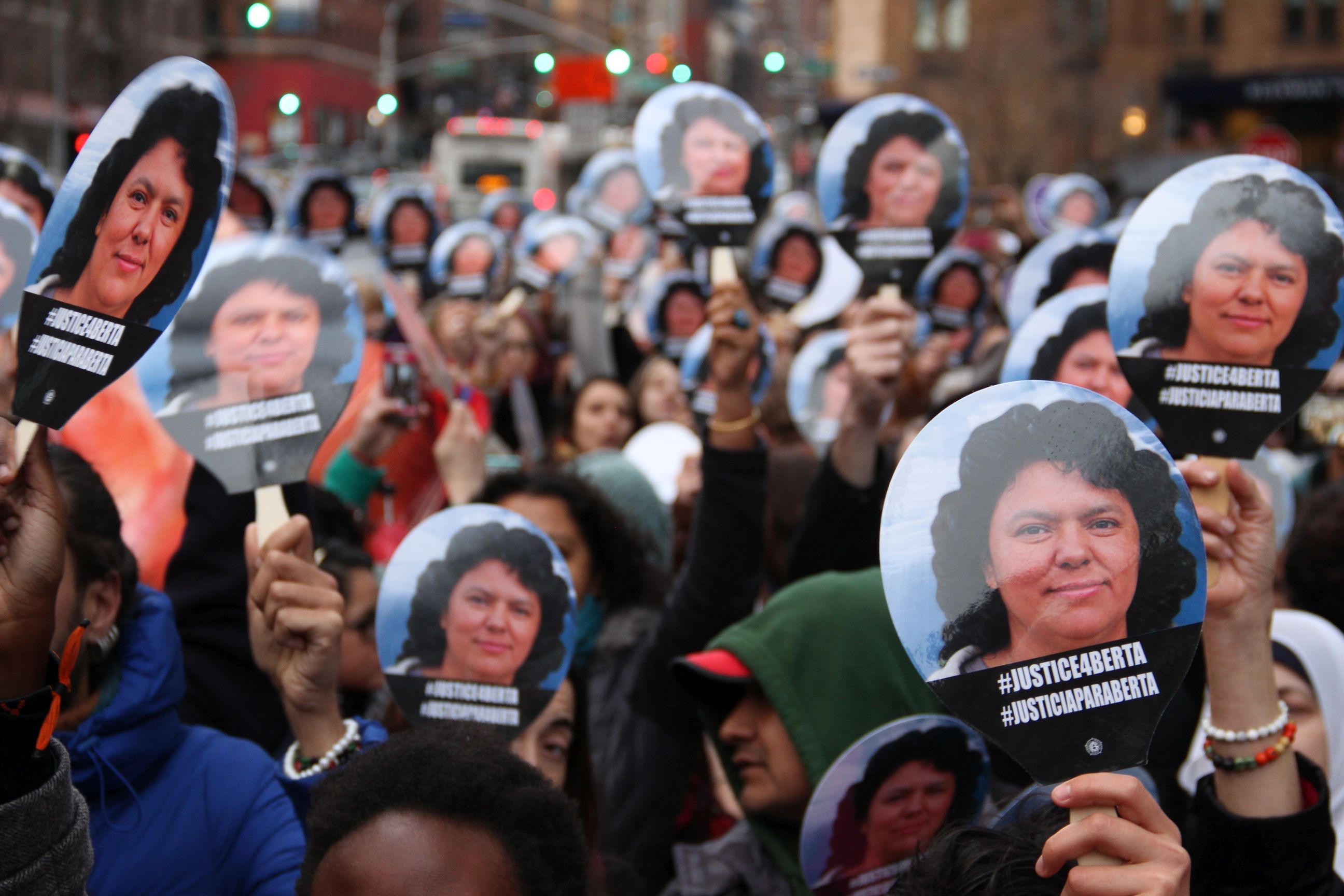
Rep. Hank Johnson reintroduced the Berta Caceres Human Rights in Honduras Act in the 115th Congress as House Resolution 1299 (HR 1299) on March 2, the first anniversary of the slain indigenous rights, feminist, and environomental activist. The bill would suspend all U.S. military and police aid to Honduras, including equipment and training, until basic human rights conditions are met. The Honduran police and military have been implicated in hundreds of human rights violations since the 2009 overthrow of the government, and we should not be supporting them with our tax dollars.
We have an amazing opportunity in the two years of the 115th Congress (2017-18) to generate enough support for this bill to get it passed. Already, Representatives Schakowsky, Lipinski, Gutierrez, Rush, and Davis from Illinois have signed on to co-sponsor. Here are three good reasons you might give us permission to sign your name on a letter to your Representative in support of this resolution, which CRLN staff will deliver when we are in DC for Ecumenical Advocacy Days:
- Berta’s family supports this bill, and we in CRLN believe in supporting the survivors of human rights abuses. Two of the suspects arrested in connection with Berta’s murder worked in military intelligence and were trained at the U.S. Army School of the Americas, and Berta’s family believes the intellectual authors of the crime occupy positions at the highest levels of government. Withdrawing financial support, along with communicating the reasons for doing so, would be a blow to these forces and might weaken their position within Honduras.
- The social movements in Honduras (LGBT, women, Indigenous, Garifuna, labor unions, environmentalists, small farmers), and the journalists who cover them, are under constant threat of violence, and we in CRLN want to do everything in our power to send the message that they have international solidarity in these dangerous times. There have been credible allegations by an army defector of the existence of death squads within the Honduran military who have received U.S. training and who have a hit list of prominent social movement leaders. We need to stop U.S. training that results in assassinations.
- The current President, Juan Orlando Hernandez, and his administration and political party are riddled with corruption. He has been named by a drug trafficker leader on trial in New York as receiving bribes from his cartel, with Hernandez’ brother acting as liaison. His National Party stole hundreds of millions of dollars from the national health insurance system to fund his first campaign. He will run again for President this fall, which violates the Constitution; and he fired four Supreme Court justices who objected and appointed four who were in favor of his re-election bid in order to be able to run again. The U.S. should not reward with funds someone who seems willing to benefit himself at the expense of his country.
For further reading, here are some recent articles on Honduras:
By Berta Caceres’ nephew on the anniversary of her assassination: Click Here
“Berta Cáceres court papers show murder suspects’ links to US-trained elite troops”: Click Here
By Steven Dudley of InSight Crime on Honduran presidents’ link to gangs:Click Here
“Protesters in DC confront Honduran president over Berta Cáceres murder”: Click Here
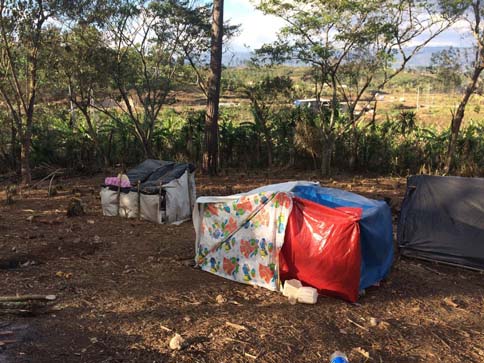
Three CRLN staff and board members traveled to Honduras February 28 – March 8 together with La Voz de los de Abajo, one of CRLN’s partner groups. Below is a reflection by Sharon Hunter-Smith upon visiting two communities engaged in land recuperation as part of the National Center of Rural Workers.
 Our group from Chicago stood staring at the rough wooden table, which held 2-dozen or so spent tear gas canisters plus a couple of bullet shells, collected by the 9th of July community from the area immediately surrounding the place where we stood. The largest one, designed to be fired from a rifle, was stamped “Made in U.S.A.” The connection between U.S. military and police aid to Honduras and the violent persecution of impoverished Honduran farmers was crystal clear in the objects before us.
Our group from Chicago stood staring at the rough wooden table, which held 2-dozen or so spent tear gas canisters plus a couple of bullet shells, collected by the 9th of July community from the area immediately surrounding the place where we stood. The largest one, designed to be fired from a rifle, was stamped “Made in U.S.A.” The connection between U.S. military and police aid to Honduras and the violent persecution of impoverished Honduran farmers was crystal clear in the objects before us.
The original rural community of 28 families has been tear gassed and evicted from their simple hand-built dwellings and cultivated land 26 times by the Honduran military or police. In the last surprise eviction on January 13, 2017, the police followed the fleeing people, even women and children, across the valley, shooting all the way. One man was shot in the leg and a pregnant woman miscarried after running away, panicked, from the “security” forces. They also tore down and burned houses, stole or burned possessions and tools left in and around the houses, and cut down some of the fruit trees and crops. Since then, the women and children, have moved to a nearby community while the men have re-occupied the land.
 “Thanks be to God that we continue to live on this land,” said one man. After each violent eviction, the community’s commitment is to return and resettle on the land within 24 hours of being pushed off, rebuilding houses and restoring crops as they are able. The bravery and endurance that this strategy demands is fed by their hope of land ownership. They experience other threats in the form of arrest warrants against them and death threats from the national or military police. “Every time we receive a group of international people who are in solidarity with us, it gives us the strength to keep going on with our struggle,” said another.
“Thanks be to God that we continue to live on this land,” said one man. After each violent eviction, the community’s commitment is to return and resettle on the land within 24 hours of being pushed off, rebuilding houses and restoring crops as they are able. The bravery and endurance that this strategy demands is fed by their hope of land ownership. They experience other threats in the form of arrest warrants against them and death threats from the national or military police. “Every time we receive a group of international people who are in solidarity with us, it gives us the strength to keep going on with our struggle,” said another.
This community of formerly landless people, organized by the Central Nacional de Trabajadores del Campo (CNTC–National Center of Rural Workers), settled this abandoned and desert-like land in 2010. They dug trenches and bought plastic pipes to carry water for irrigation and drinking water from a spring 3 kilometers away. They planted fruit trees and other crops to feed their families. A dry hillside turned green and provided a way to make a living. The CNTC works with 203 other communities, like 9th of July, who are reclaiming land and putting it to good use in 14 of the 18 Honduran departments (what in the U.S. would be called states).
 The National Agrarian Reform Law provides that idle land fit for farming can be expropriated and awarded to indigent and landless persons by the government, but this does not happen often. To force the issue and obtain the land essential for rural people to support themselves and their families, the CNTC works with landless people to settle and plant on unused, undeveloped or abandoned land. The occupants then file for title to the land under the Agrarian Reform Law with Honduran National Agrarian Institute (INA).
The National Agrarian Reform Law provides that idle land fit for farming can be expropriated and awarded to indigent and landless persons by the government, but this does not happen often. To force the issue and obtain the land essential for rural people to support themselves and their families, the CNTC works with landless people to settle and plant on unused, undeveloped or abandoned land. The occupants then file for title to the land under the Agrarian Reform Law with Honduran National Agrarian Institute (INA).



(Photo credit// credito de la foto: Mijente.)
CRLN continues to fight for meaningful and ongoing practices of sanctuary at all levels, from our congregations and neighborhoods to schools and city government. Taking the lead from BYP100 and Mijente nationally, we are working with other Black, Latinx, and im/migrant community organizations in Chicago to expand sanctuary.
Together, we call for real sanctuary that provides protections for ALL communities directly impacted by attacks under the current administration. While Chicago is publicly a “sanctuary city,” we believe that the current Welcoming Cities Ordinance does not go far enough to provide sanctuary for all residents. Chicago has a history of over-policing, racial profiling, and criminalization, which has led to Chicago residents being put in deportation proceedings and in the prison system, even when the police do not directly cooperate with ICE.
As Janae E. Bonsu, National Public Policy Chair for the Black Youth Project stated at last month’s press conference to #ExpanSanctuary:
“Sanctuary – as the city of Chicago had defined it – doesn’t go far enough. Until the mayor and city council shows a real commitment to ending the criminalization of Black and Latinx people in policy and practice, sanctuary will remain an empty word to our people.”
Instead, we imagine a city where communities of color and undocumented communities do not face violence from either the police or immigration agents. We imagine a city that directly challenges the larger systems of criminalization, mass incarceration, deportations and detention. Join us in calling for the city of Chicago to strengthen the ‘Welcoming Cities Ordinance’ AND to vote in favor of the ‘Recommendations to Fraternal Order of Police Contract Resolution.’
To learn more about this campaign, to get involved, or to reach out to your alderperson in support of these policies, please contact the CRLN Immigration Organizer at crodriguez@crln.org.
Alerta de políticas publics: #ExpandSanctuary en la ciudad de Chicago
CRLN continúa luchando por prácticas significativas de santuario en todos los niveles, desde nuestras congregaciones y vecindarios hasta las escuelas y el gobierno de la ciudad. Tomando la iniciativa de BYP100 y Mijente a nivel nacional, estamos trabajando con otras organizaciones comunitarias, AfroAmericanas y negras, Latinx, y migrantes en Chicago para expandir el concepto de santuario.
Juntxs, pedimos practicas de santuario reales que proporcionen protecciones para TODAS las comunidades directamente afectadas por los ataques de la actual administración. Mientras que Chicago es públicamente una “ciudad santuario”, creemos que la actual ‘Welcoming Cities Ordinance’ (Ordenanza de Ciudades de Acogida) no va lo suficientemente lejos como para proporcionar un santuario para todos los residentes. Chicago tiene un historial de policiamiento excesivo, discriminación racial y criminalización, lo que ha llevado a los residentes de Chicago a ser sometidxs a procedimientos de deportación y al sistema penitenciario, incluso cuando la policía no coopera directamente con ICE.
Como dijo Janae E. Bonsu, Presidenta Nacional de Políticas Públicas para BYP100 en la conferencia de prensa del mes pasado para #ExpandSanctuary:
“Santuario – como la ciudad de Chicago lo ha definido – no va lo suficientemente lejos. Hasta que el alcalde y el ayuntamiento demuestren un compromiso real para poner fin a la criminalización de la gente negra y latina en la política y la práctica, el santuario seguirá siendo una palabra vacía para nuestra gente.”
En cambio, imaginamos una ciudad donde las comunidades de color y las comunidades indocumentadas no se enfrentan a la violencia ni de la policía ni de los agentes de inmigración. Imaginamos una ciudad que desafía directamente a los sistemas más amplios de criminalización, encarcelamiento masivo, deportaciones y detención. Únase a nosotros llamando a la ciudad de Chicago para fortalecer la ‘Welcoming Cities Ordinance’ Y votar en favor de las Recomendaciones a la Resolución de Contratos de la Orden Fraternal de Policía (‘Recommendations to Fraternal Order of Police Contract Resolution’).
Para obtener más información sobre esta campaña, para involucrarse o para comunicarse con su consejo local en apoyo de estas políticas, comuníquese con la organizadora de inmigración de CRLN en crodriguez@crln.org.

Given Honduras’ human rights situation, CRLN will provide for its members a monthly update on human right issues afflic ting the country.
ting the country.
- The Honduran authorities arrested another suspect of the assassination of Berta Caceres, Henry Javier Hernandez Rodriguez, a former member of the Honduran military, in Tamaulipas, Mexico. Berta’s family demands the arrests of those that planned the murder. However, the Honduran authorities don’t seem to be making any effort to prosecute the real intellectual authors of Berta’s assassination.
- Gustavo Castro, who survived an assassination attempt when Berta Caceres was murdered, filed a formal accusation against the Honduran State for human rights violations.
- Global Witness released a report that denounces, after a two-year investigation, that 120 environmental activists have died since 2010 in Honduras and that at the heart of the conflict are the rich and powerful elites, among them members of the political class. The Guardian analyzed the Global Witness report, focusing on the involvement of politicians and the business elite in the murder of the environmental defenders. Global Witness also denounces that the U.S. continues to provide security aid to Honduras despite the continuous human right violations by the state. Just this week, the U.S. gave the first Alliance for Prosperity funds ($125 million) to the Honduran government.
- President Juan Orlando Hernandez is seeking a reform to the Penal Code and introduction of new legislation which would provide more power to the security forces of the country. Also, with this legislation, police, military and security forces who kill or injure civilians in “defense” would be exempt from justice. CARITAS Honduras said this legislation would bring the country back to the 80’s when the opposition and media were persecuted and practices of forced disappearances occurred regularly. Amnesty International, among other international and national organizations, is critical of this reform of the Penal Code.
- Miriam Miranda and other members of the Afro-Honduran Garifuna cultural group OFRANEH were harassed and threatened by the Honduran Police in early January. The police wanted to illegally detain Miranda and three other human right defenders, during a checkpoint in La Ceiba. Miriam has protective measures from the Inter-American Commission on Human Rights (CIDH).
- Journalist Igor Padilla, was assassinated in the Northern part of Honduras. Honduras is one of the most dangerous and deadliest countries in the world to be a journalist. Padilla became the 63rd media worker to be killed since 2003. 50 of the 63 murders took place since 2009 and 24 alone in 2014 and 2015.
- OFRANEH is fighting against Indura Hilton, which wants to build resorts on their ancestral lands in Northern Honduras, and denounces the role of the Attorney’s General Office in granting access to that land to Indura Hilton
- Honduras celebrated National Women’s day this past January 25th, and local women right’s defenders and organizations protested the continuous violence and discrimination against women in the country.
- President Hernandez is actively seeking an illegal re-election, prohibited by the Honduran Constitution, and is harassing the opposition. In the previous election, the National Party stole funds from the Social Security system, leaving sick and economically poor people without medicine and treatments, in order to finance his political campaign.

